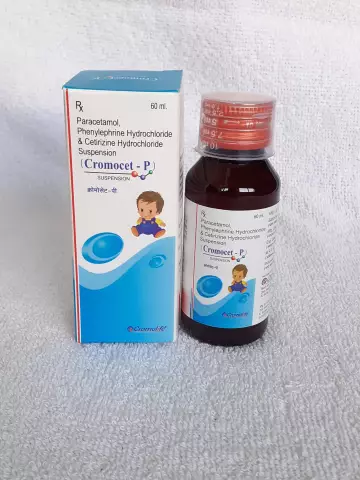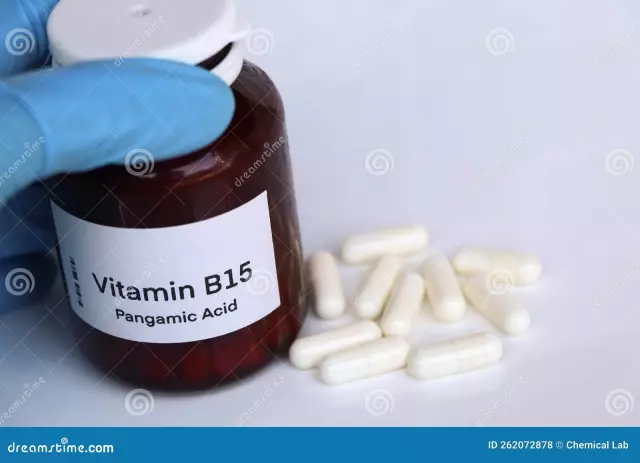- Author Curtis Blomfield blomfield@medicinehelpful.com.
- Public 2023-12-16 20:44.
- Last modified 2025-01-23 17:01.
Pathologies accompanied by an inflammatory reaction in the upper respiratory tract are very common. In some people, such diseases recur several times a year. In some cases, pathologies have a chronic course and become aggravated under the influence of adverse factors (hypothermia, allergic reactions). To combat inflammatory reactions, various medicinal substances are used. One of them is phenylpropanolamine hydrochloride. Preparations based on it are used both as monotherapy and in combination with other drugs. The sympathomimetic has several analogues that do not differ in effectiveness.

What is Phenylropanolamine Hydrochloride?
This substance has been used for pharmacological purposes for many years. Phenylpropanolamine hydrochloride is often added to combination medications to treat colds and allergies. The main action of thischemical compound is vasoconstriction. That is, when the drug enters the body, vasoconstriction occurs. Most nasal sprays and drops have a similar effect. Due to vasoconstriction, there is a decrease in mucus secretion. As a result, nasal breathing improves. However, preparations containing phenylpropanolamine hydrochloride should be used with caution. To a greater extent, this applies to children and people suffering from arterial hypertension. With frequent use or overdose of such medicines, myocardial infarction, hemorrhagic stroke may develop. In its action, phenylpropanolamine hydrochloride is similar to the vasoconstrictor adrenaline. It is an alkaloid that is a stereoisomer of cathine.

Indications for use
Preparations based on this substance are used both for allergic pathologies and as remedies for colds. Under the influence of phenylpropanolamine, the production of mucus decreases, and the swelling of the mucous membranes of the nose and throat also decreases. Indications for the use of the drug are the following pathological processes:
- Rhinitis. Often occurs with various acute respiratory viral infections, influenza, bacterial diseases.
- Allergic rhinitis. It is observed in people prone to hypersensitivity reactions. In this case, a runny nose develops due to contact with allergens. Most often, rhinitis is associated with flowering plants, dust particles entering the nasal passages,fluff (hay fever).
- Mild bronchial asthma. Under the influence of the substance we are considering (phenylpropanolamine hydrochloride), the production of not only nasal mucus, but also the secretion of the lower respiratory tract decreases.
- Bacterial sinusitis occurring with rhinorrhea syndrome (runny nose).
Most often, medicines, which include this substance, must be used in combination with other medicines. Among them are antibiotics, antiviral and antihistamines. In some cases, combined drugs are prescribed, one of the components of which is phenylpropanolamine hydrochloride.

What medicines contain this drug?
There are several medicines containing the alkaloid phenylpropanolamine hydrochloride. Preparations that contain this substance, as already mentioned, are used for colds and allergic reactions. Among them are the following medicines:
- "Degest". This drug contains 2 components - phenylpropanolamine hydrochloride and paracetamol. Given the combination of anti-inflammatory and vasoconstrictive effects, the drug is prescribed at the first manifestations of a cold.
- Capsules "Koldakt". In addition to the vasoconstrictor component, they contain chlorphenamine. This substance has an antiallergic effect.
- Drug "Lorain". It is a combination of substances such as phenylpropanolamine hydrochloride,paracetamol and chlorphenamine.
- "Dietrin". Unlike other drugs, this medical product has an anorexigenic effect. Due to the combination with the anesthetic benzocaine, the drug causes vasoconstriction of the gastrointestinal tract. As a result, there is a decrease in the need for food. The drug is used for obesity. Treatment should be carried out under the supervision of an endocrinologist.
Contraindications for use and side effects
The drug should not be used in severe cardiovascular pathologies, after a recent myocardial infarction or stroke. A contraindication is hypersensitivity to ergot drugs (drug "Bromocriptine"), a pronounced decrease or increase in blood pressure, toxicosis.

Among the side effects of phenylpropanolamine hydrochloride are digestive system disorders (nausea and vomiting), dizziness. Sometimes disorders of the nervous system can be observed. Among them are hallucinations, drowsiness, arousal. Most often, side effects develop when the drug is discontinued. It is worth remembering that vasoconstrictors are addictive, so do not abuse them.
Medications that have the effects of phenylpropanolamine hydrochloride: analogues
There are many preparations containing an identical active ingredient. They are called analogues, since they have the same composition and the same indications for use. Among them are "Kontak" and "Koldar". They are combinedmeans and contain vasoconstrictor and antihistamine components. The drug, which contains only phenylpropanolamine hydrochloride, is Proin. Another analogue of the combined drugs is the drug "Dimefort". In addition to the antihistamine and vasoconstrictor component, it contains the substance bromocriptine. This drug is used in gynecology for the treatment of infertility and menstrual irregularities.

Interaction of the drug with other medicines
Medicines containing phenylpropanolamine hydrochloride should not be used with oral contraceptives, CNS depressants, or MAO inhibitors. It is worth remembering that bromocriptine enhances the effect of the drug "Levodopa". Therefore, when using them together, it is worth stopping the drug or reducing the dosage.






